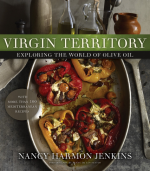The Press Herald has published an interview with Mike Wiley and Andrew Taylor, the chefs/co-owners of Hugo’s and Eventide.
Q: You are both owner/chefs. What’s the division of labor?
TAYLOR: He focuses much more on Hugo’s, and I focus much more Eventide. We’ve hired an old sous-chef for Honey Paw. Both of us are intimately involved with the menu at Honey Paw. If I have a flash of inspiration that fits better at Hugo’s, I’ve no problem saying that. And the same for him. We try to cultivate a collaborative atmosphere in the restaurant. I really like it when a cook says, “I’d really like to do this.” It’s much better if the cooks have a sense of ownership because it’s going to taste better.
WILEY: It sounds clichéd, but we have a really awesome community that helps us run the restaurants.
Taylor and Wiley are semi-finalist nominees for this year’s James Beard Best Chef: Northeast award. Along with their co-owner Arlin Smith, they’re currently in the process of launching a third restaurant, The Honey Paw.
